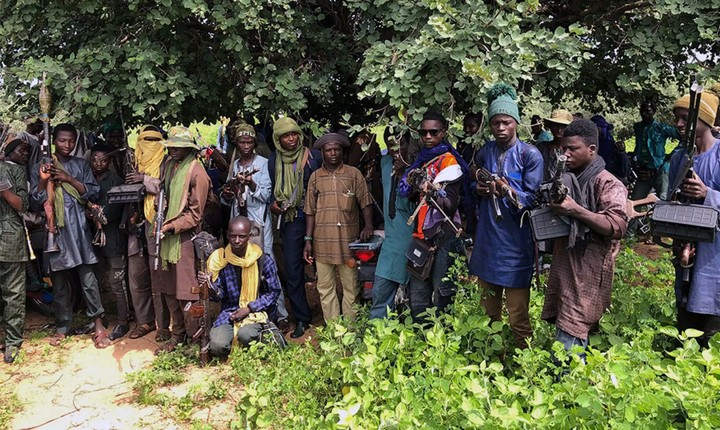Physical Address
304 North Cardinal St.
Dorchester Center, MA 02124
Physical Address
304 North Cardinal St.
Dorchester Center, MA 02124


Some words don’t just echo—they shake the ground beneath them.
That’s what happened in Danmusa, Katsina State, when notorious bandit leader Ado Aleru stood before security officials, community leaders, and civilians—not as a fugitive, but as a participant in peace talks.
And then he said this:
“If we are still being called terrorists, then do not expect us to stop behaving like terrorists.”
It wasn’t just a statement—it was a message. And Nigeria heard it loud and clear.
Violence as a Language of Power?
Aleru’s words force us to ask uncomfortable questions:
Is labeling bandits as terrorists fueling the conflict, or exposing the truth?
Does dialogue with criminals bring peace, or does it legitimize their actions?
Are these men choosing violence, or were they failed by a system that left them no other choice?
Aleru claims neglect, poverty, and injustice pushed young men into banditry—not ideology, not greed. He says they are reacting to a state that has ignored them for generations. But does that justify burned villages, kidnapped children, and murdered farmers?
That’s where the conversation turns from complex to dangerous.
Peace Talks or Surrender?
The fact that Aleru—a man long wanted for terrorizing Katsina and Zamfara—was invited to peace talks speaks volumes about Nigeria’s struggle to end banditry.
Authorities are faced with two choices:
✅ Negotiate, knowing that dialogue might offer a way out—but also knowing it risks legitimizing criminals.
✅ Crack down, which might restore order—but could also deepen the desperation and anger driving the violence.
Either way, the line between justice and survival keeps getting blurrier.
What Happens Next?
No one knows if these talks will change anything. Nigeria is still bleeding from rising insecurity, political instability, and economic hardship—and criminals aren’t the only ones exploiting that chaos.
But one thing is clear: words like Aleru’s aren’t just threats. They’re signals. Signals that the crisis isn’t just about guns and ransom payments, but about something deeper, darker, and unresolved.
And if we don’t find the real root of this war, Nigeria might be stuck fighting it forever.
Final Word: Should We Be Listening?
It’s easy to dismiss men like Ado Aleru as criminals—and they are. But criminals understand power, and right now, they hold too much of it.
So the question isn’t just whether we should listen to bandits—it’s whether Nigeria will act before their words become even more dangerous.
What do you think? Is negotiation the answer, or is this a dangerous gamble? Let’s talk.